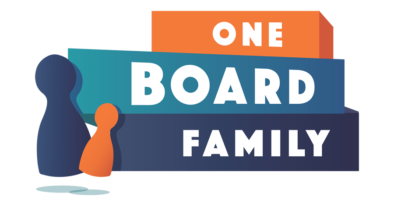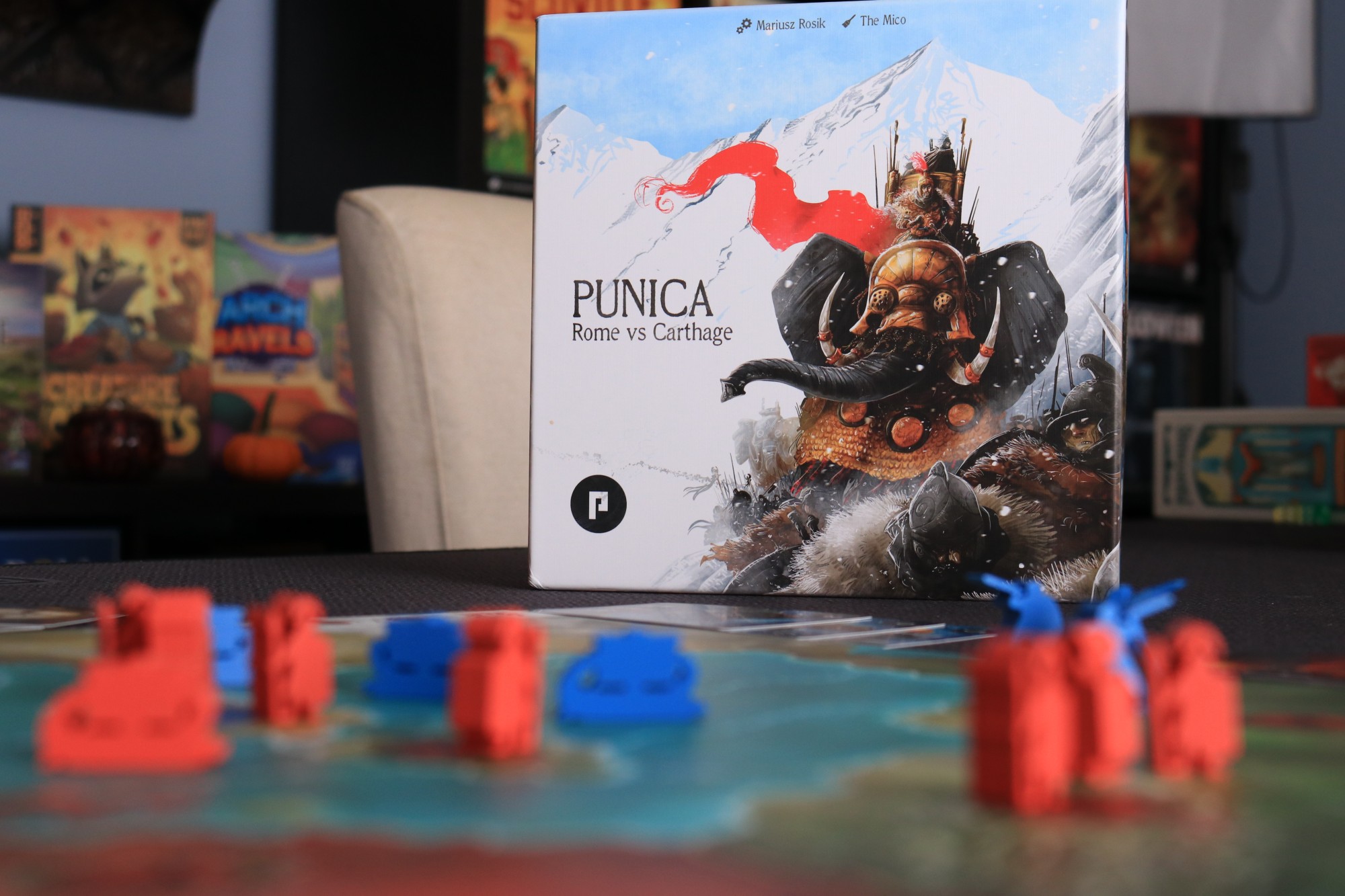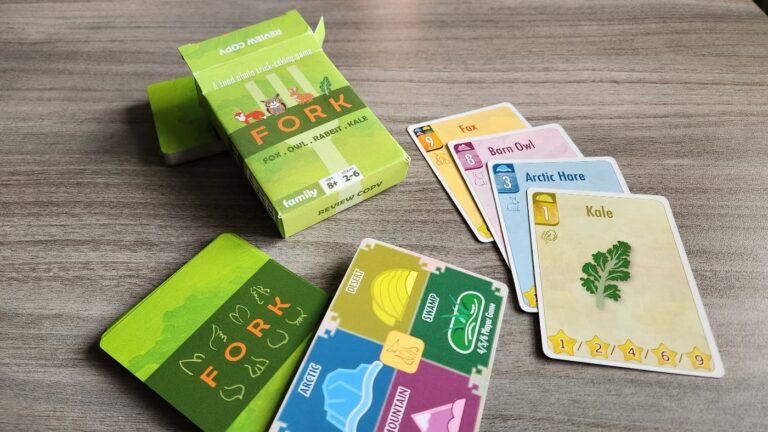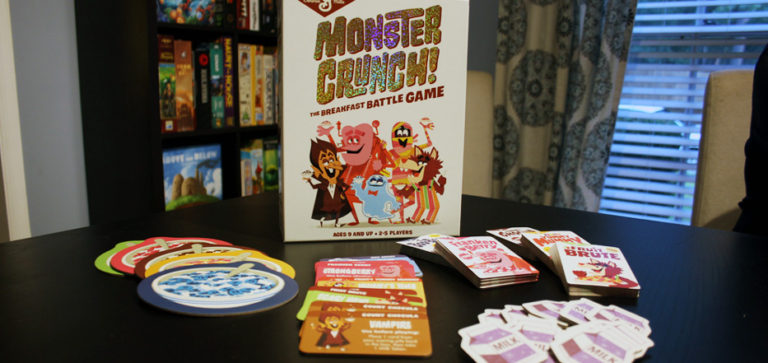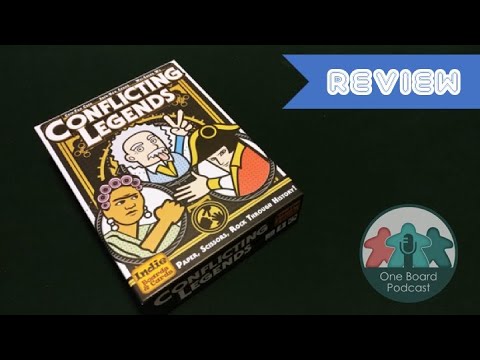Punica is a hand management and area control game that depicts the battle between the Roman empire and Carthage armies that lasted over 80 years back in 200 B.C. Players will choose which army they fight with as they strategically move around a map and cross the Mediterranean Sea. The goal is to eliminate the opposing army, control the opposing capital city, or control three of your opponents areas of influence. Believe it or not, all this takes place in around 20 minutes!
Battle Ready
Whether you choose the Roman empire (red) or Carthaginian army (blue), you’ll take the armies, fleets, and hand of seven cards in your color. Players begin on opposing sides of the board with the Mediterranean Sea and the island of Sicily between them. Turns in Punica are simple. You can choose to move an army or fleet, use a card for its effect, deploy a fleet that was removed from the board, or pass.
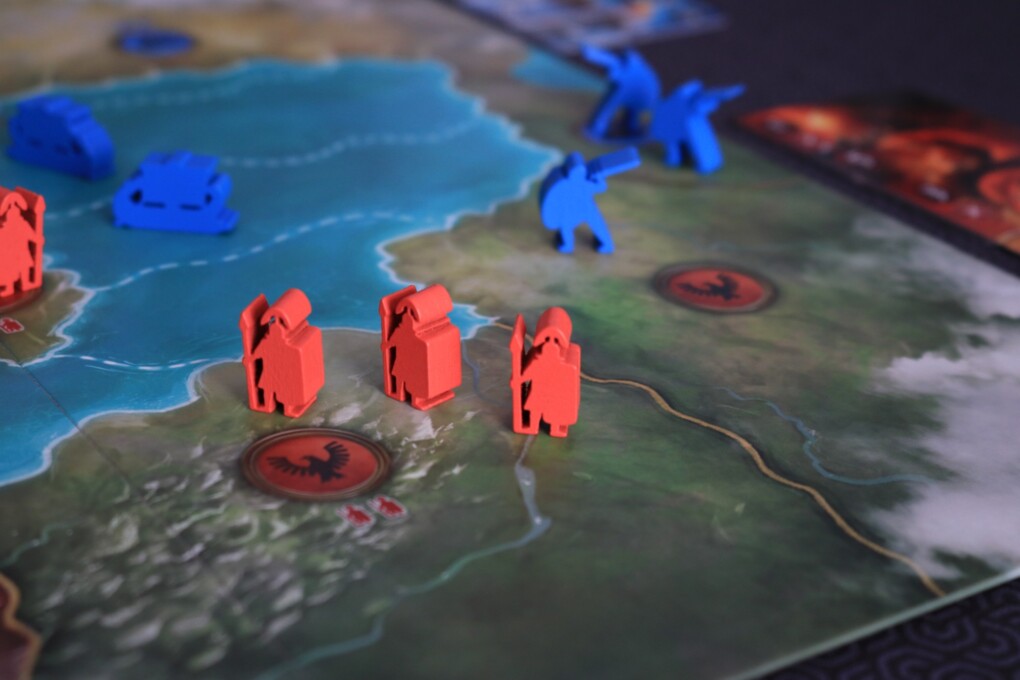
Movement takes place from one region to an adjacent region OR you can use your fleet tokens almost like a road to cross the sea. Moving fleet tokens to set up for a big movement is critical to accessing your opponents side of the map. Since movement only focuses on a single army or fleet token, some turns will be very quick.
When you want to move more than one army, look at the card effects at the bottom of the cards in your hand. Some of these cards allow the player to move multiple armies at once or move a single army into multiple regions on a turn. Be careful, because ending an action in a region with your opponents army will initiate a battle.
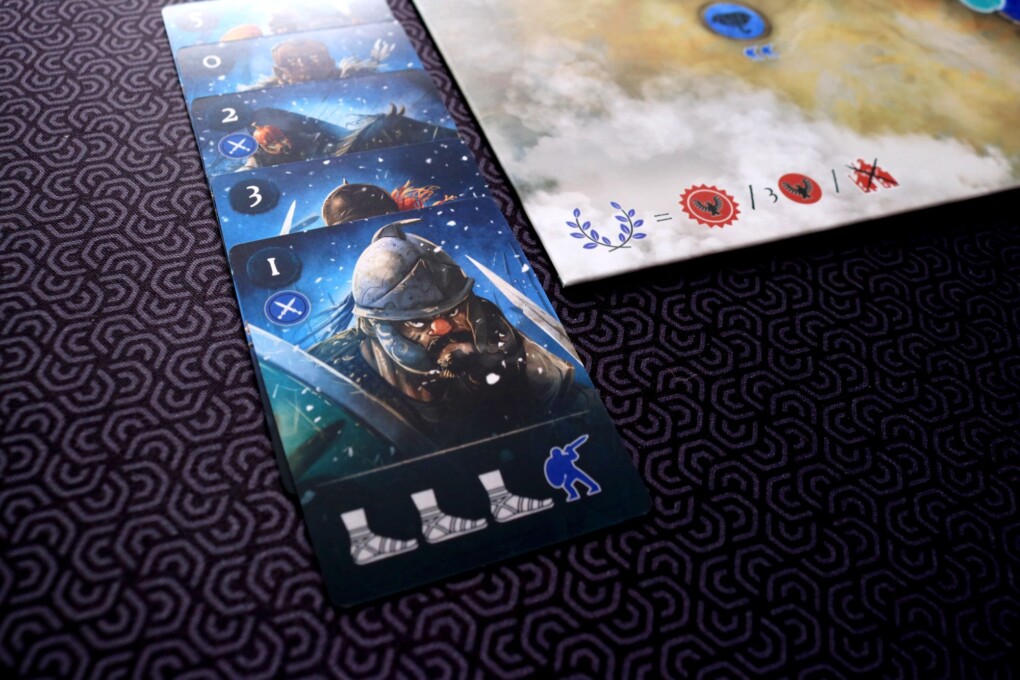
Warrrrr!
Battles play out with both players choosing a card from their hand to play and revealing them simultaneously to see the results. Players add the number of armies in that region to the number on their card to see who played the higher strength. Some cards have a special symbol that allows the player to trigger the card effect BEFORE resolving the battle. The losing player eliminates an army in that region from the game and then retreats to a safe region with the rest of their armies.
One thing I love about Punica is that the two armies have asymmetric decks of cards. Both players have all the information about their opponent on the handy player aid they receive. Once a card is played (in battle or for its effect), this card is gone until all the cards in the players hand have been used.
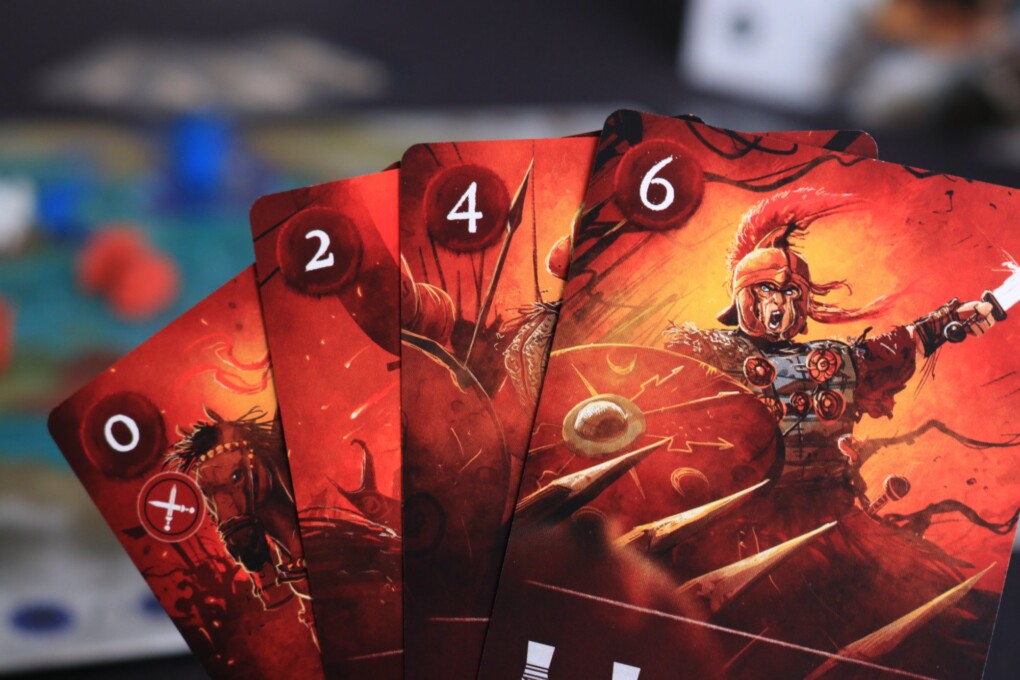
This means that players need to find ways to cycle through cards quickly when they have spent the higher numbered cards in their hand. Punica isn’t only about the battle that is taking place on the map, it’s also about managing that hand of cards and not getting caught off-guard when a battle occurs.
The Rules of Engagement
The rules for Punica are really straight-forward and the rulebook does an excellent job of giving examples of what could happen in the average game. As I said, this game takes only around twenty minutes from start to finish.
The number of strategic decisions during the game was really impressive for a game of this size. Punica takes up very little space but the wooden tokens scattered across the map makes players feel like a tiny war is taking place on the table.
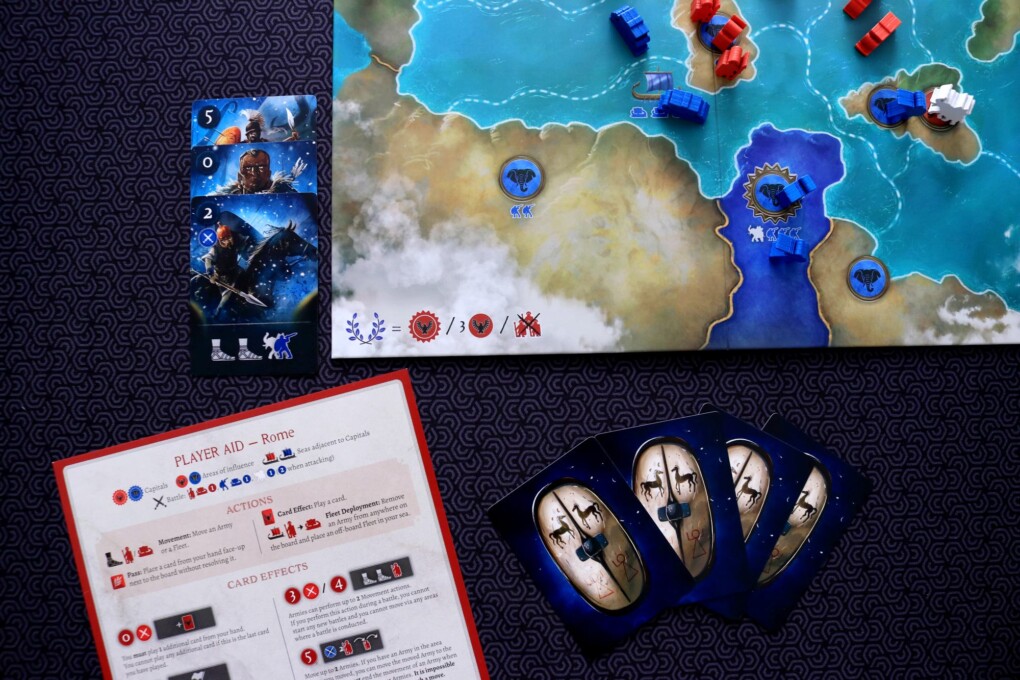
Players will feel punished a bit when they make a series of bad moves or forget to protect specific regions of the map. In this game, every movement matters. Every battle you win, or choose to lose, matters. The great part is, even when you screw up, jumping into another match is quick and painless.
While I enjoy a good military strategy game, it can feel overwhelming when there’s an extensive ruleset or loads of maintenance between turns. Punica is an extremely accessible, head-to-head strategy game where players aren’t getting bogged down in a rulebook.
Final Thoughts
What initially drew me into this game was the incredible artwork from The Mico. The front cover of Punica has Hannibal riding an elephant as armies battle around him on the snowy mountain side. This game feels more epic than its small foot print on the table.
The wooden player pieces are well made and fits nicely against the central map. Icons on the board remind players of the three different win conditions along with starting locations for all their armies and fleets. I really appreciate the two double-sided player aids included in the game. Every card effect along with explanations for all four actions are found on these oversized cards. This keeps players engaged with the game and out of the rulebook which is a huge win.
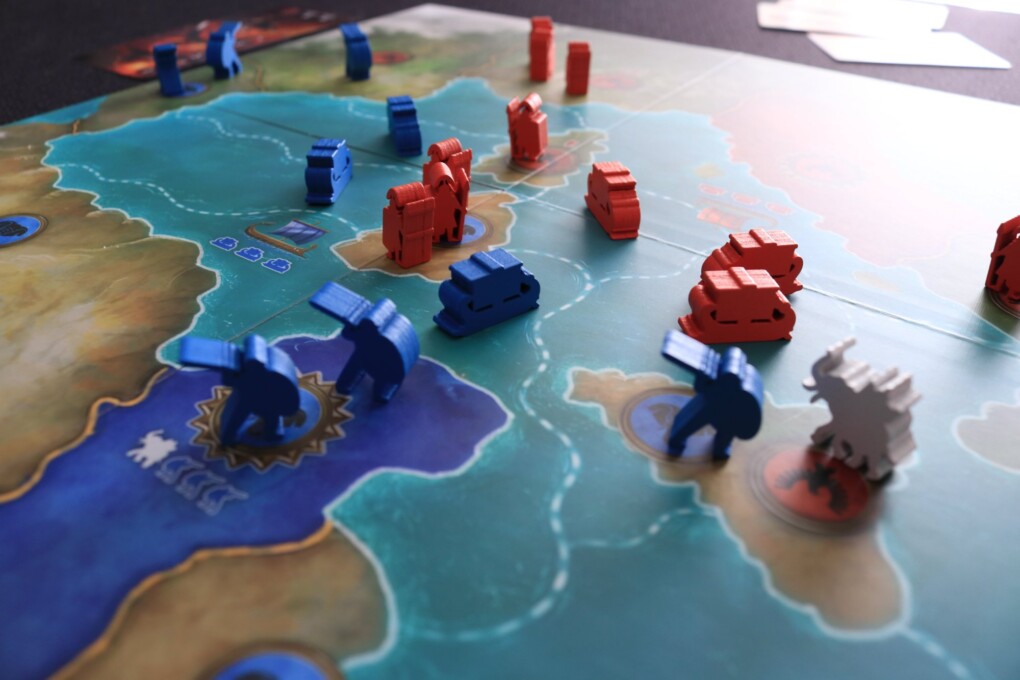
I think my only critique of this game is that the single map feels limiting when we talk about replayability. Because the map is static, there will come a time where you might want another map to explore. While I’m not at that point yet, I could see that being an issue. Part of the issue with grounding a game in a real place and time is that you can’t just drop these two ancient civilizations into a random spot somewhere else on Earth. The map is a place where these battles actually took place. While I’d love another battle map on the other side of the board, that’s not really possible.
There are some great two player focused games on the market and Punica: Rome vs Carthage is one that deserves some attention. If you’re in the mood for a quick-playing strategy game and enjoy area control, do yourself a favor and check this one out. I know this is a game that Erin and I will keep in our two player gaming rotation.
Punica: Rome vs Carthage is available through the Phalanx webstore today.
This game was provided to us by the publisher for review. Read more about our review policies at One Board Family.
Highs
- Gameplay is quick and the rules are easy to teach a new gamer
- Great components and table presence for a small game
- Asymmetric armies mean that both players have unique perks
Lows
- Wish there was an additional map for added replayability
Complexity

Time Commitment

Replayability

